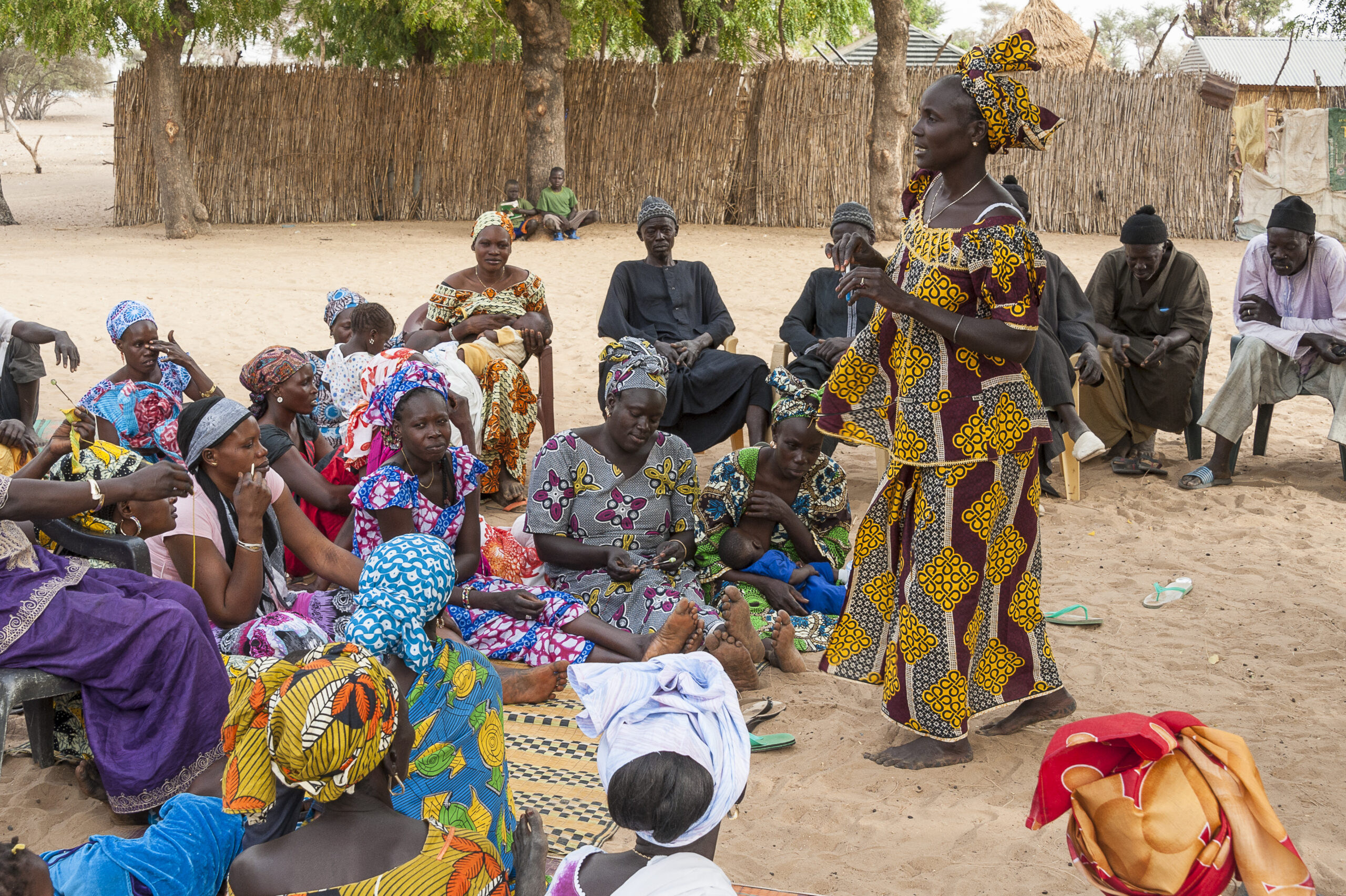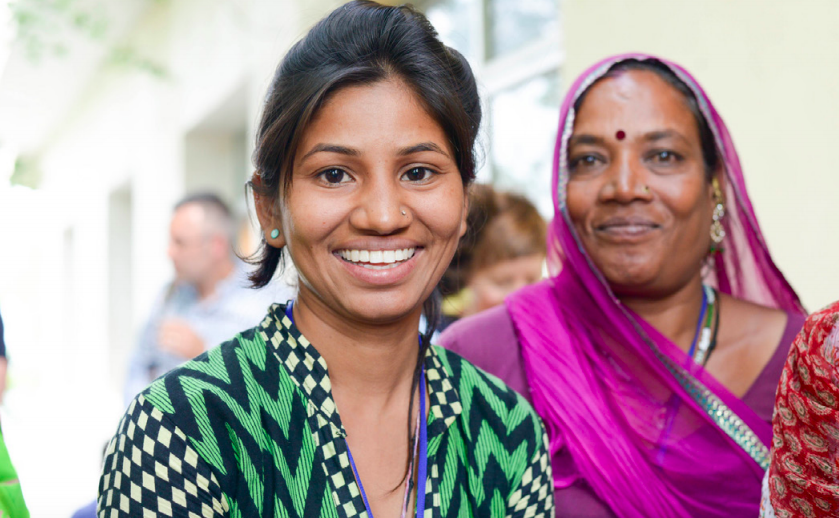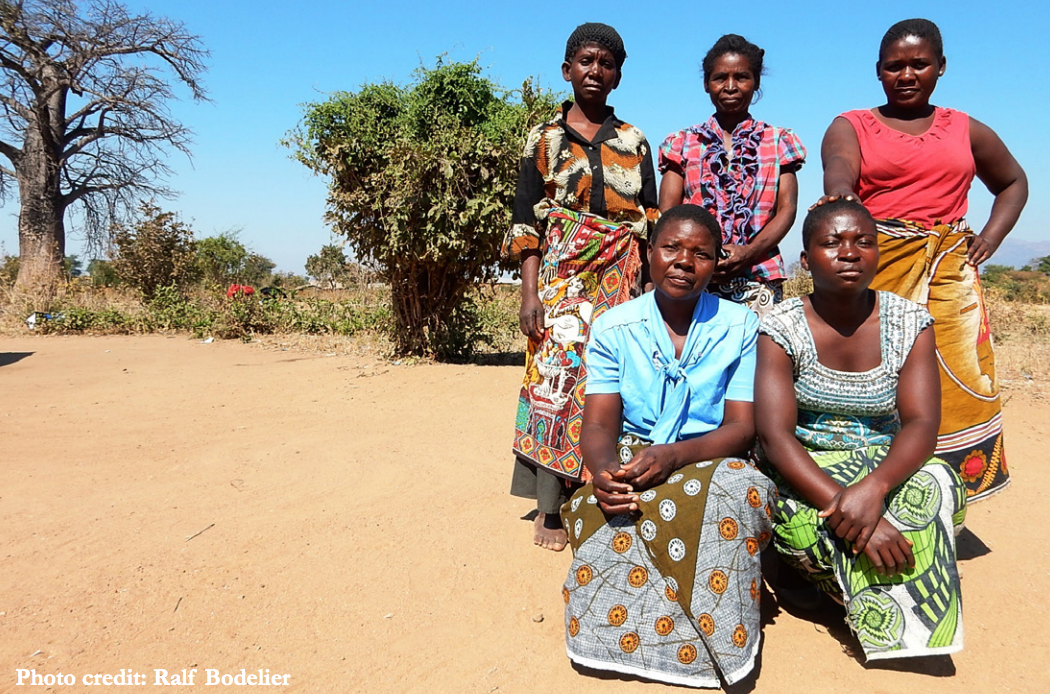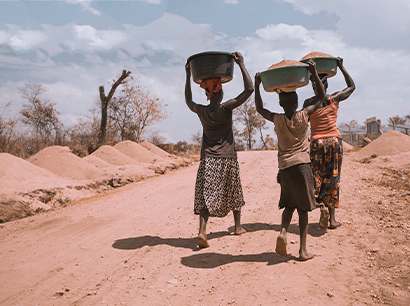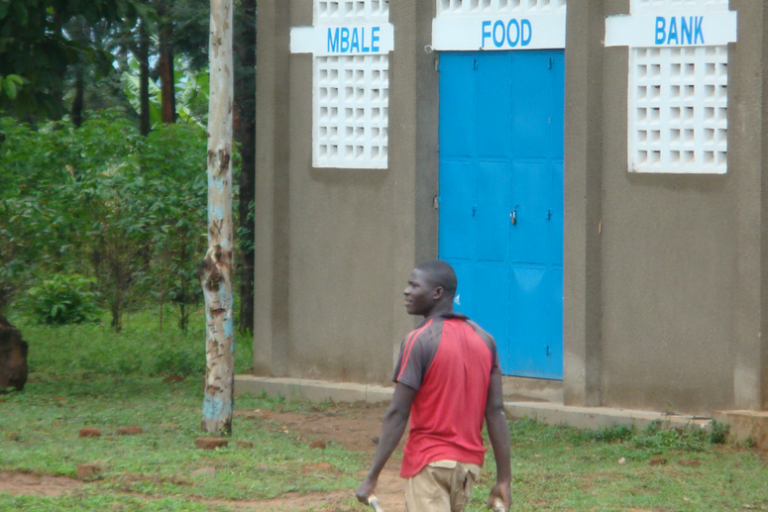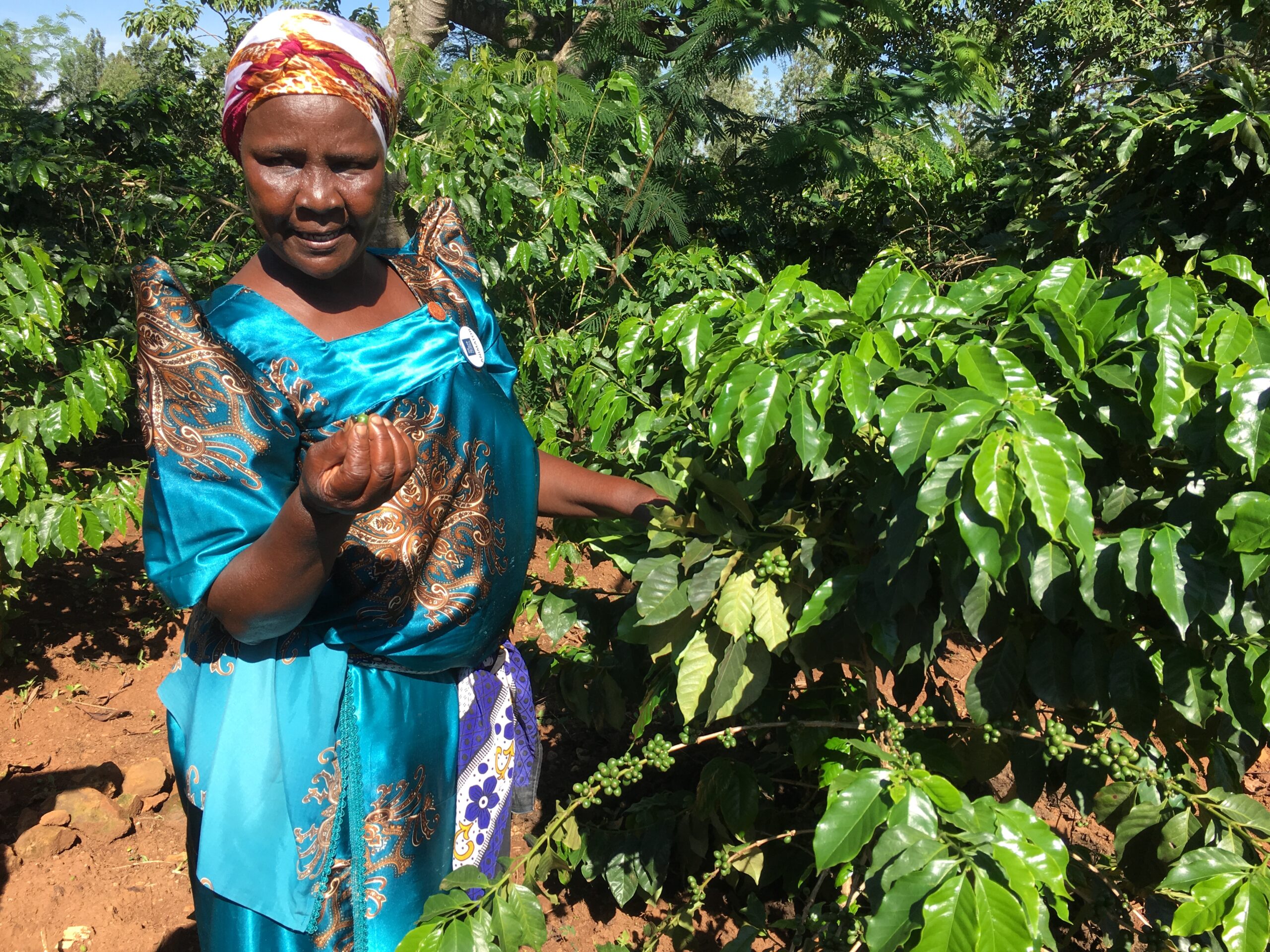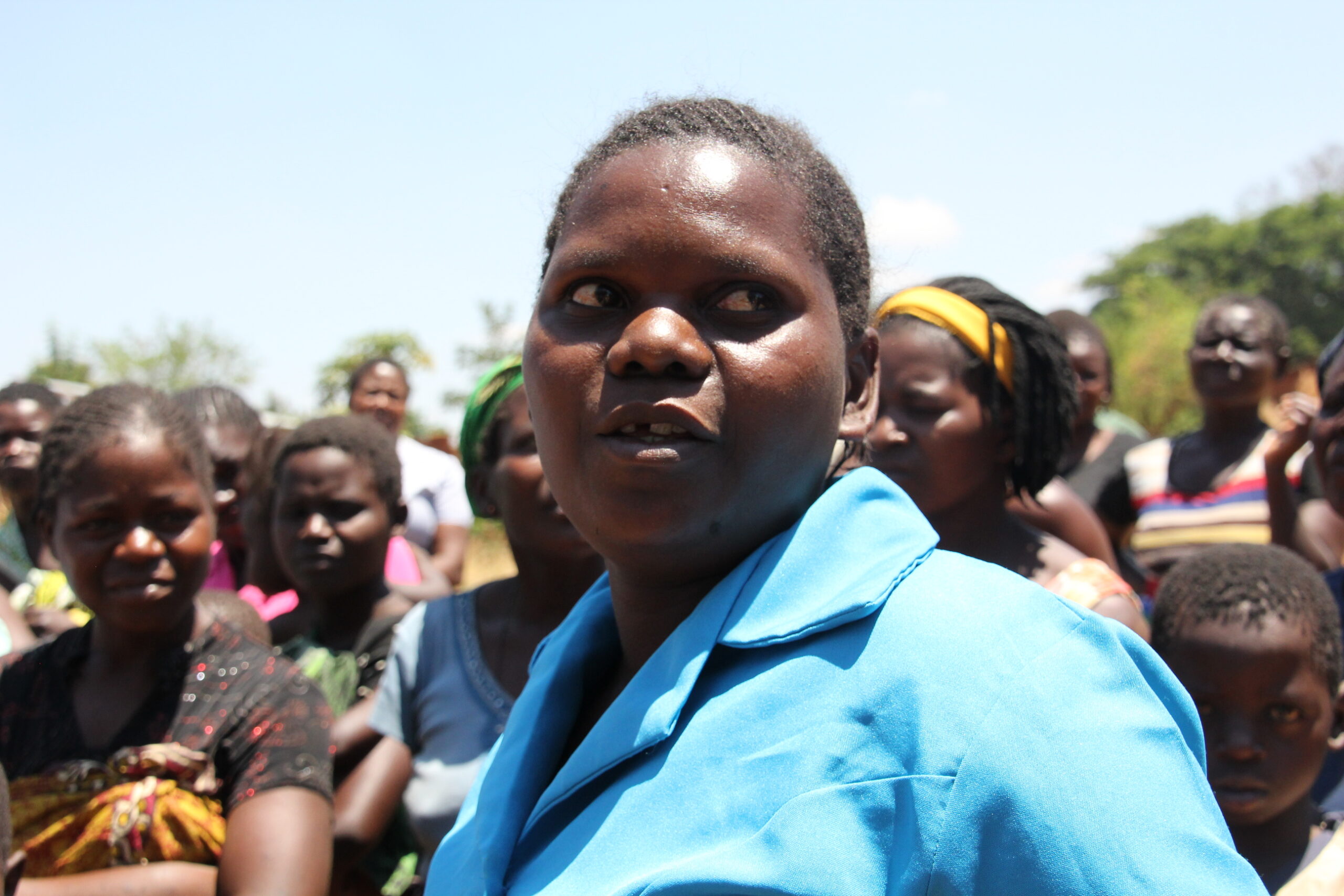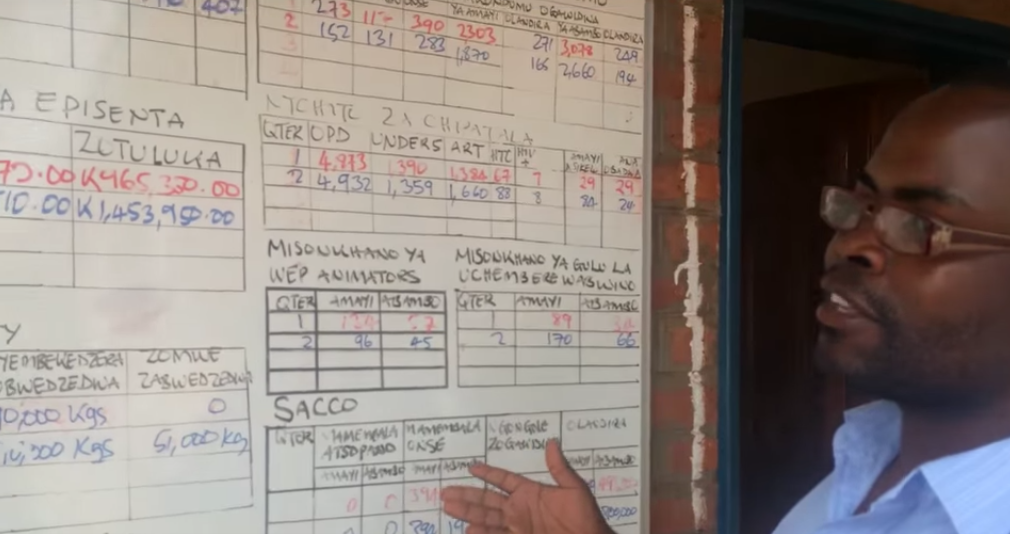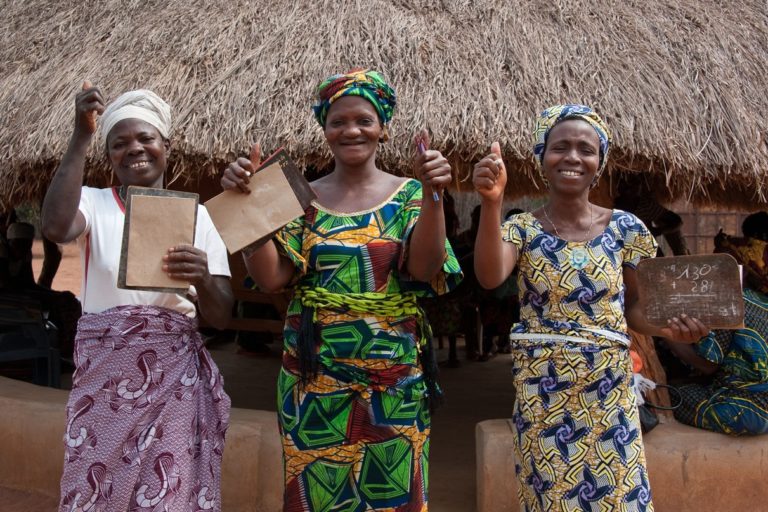The Hunger Project-Benin and The Hunger Project-Burkina Faso are celebrating their 20th year of working to end chronic hunger and poverty!
In both Benin and Burkina Faso, we have worked in close partnership with local and national government agencies, and with the generous support of many local and international funding partners and thousands of individual investors.
The Hunger Project began work in both Benin and Burkina Faso in 1997 by mobilising clusters of villages through our Epicentre Strategy. Each group of rural villages becomes an “epicentre and a dynamic centre of community action. Communities launch and run their own programs to address their most pressing challenges. For example, epicentre communities work together to address health and nutrition, access to clean drinking water and sanitation, education and literacy, food security, microfinance, climate change and women’s and youth’s empowerment.
The Epicentre Strategy is designed to partner with communities for about eight years, after which each epicentre graduates to a phase of “sustainable self-reliance.” At this point, the epicentre has demonstrated the confidence, capacity and skills to act as agents of their own development.
The Hunger Project-Benin currently partners with 19 epicentres, serving 183 villages and a population of 297,256. Three of these epicentres—Avlamé, Beterou and Kissamey—have graduated to the phase of “sustainable self-reliance.” The self-reliant epicentres have had impressive results, including a 72% decrease in chronic hunger and a 73% increase in participation in epicentre activities in 2016 alone.
In Burkina Faso, The Hunger Project works with community partners in 15 epicentres, serving 189 villages and a population of 303,893. Of the 15 active epicentres, Boulkon Epicentre has graduated to the phase of “sustainable self-reliance” and, between 2014-2016, was able to halve the proportion of households living below the poverty line. The gains were particularly strong for women, where the proportion of female business owners increased 600% over that time period, from just 5% in 2014 to 35% in 2016!
Since their launch, programs in both countries have continued to thrive by spearheading holistic initiatives that sustainably address the needs of changing and growing rural communities. For example, in 2015, The Hunger Project-Benin led a national campaign to raise awareness about the nutritional benefits of the “miracle” Moringa tree. The pilot program has now been expanded to seven other program countries in Africa. And in 2016, The Hunger Project-Burkina Faso launched activities as part of an 11-country partnership to end child marriage. The partnership is in alliance with a group called Her Choice, which involves several organisations dedicated to creating child-marriage free communities in which girls are able to decide if, when and whom to marry.
To acknowledge 20 years of community empowerment and innovating for the end of hunger and poverty with initiatives such as the Movement for CLD, The Hunger Project-Benin organised an event at the Palais de Congress. The event brought together national and regional leadership, partnership organisations, and women leaders from the epicentres themselves in a shared celebration of sustainable development.
Our 20-year record of achievement in Benin and Burkina Faso is grounded in the principle that people must be the agents of their own change. We invite you to learn more about our programs in both countries and celebrate community partners who are doing the incredible work of ending hunger for themselves, their neighbours and their families.
Feature photo by Johannes Odé.
Post courtesy of The Hunger Project, Global Office.

